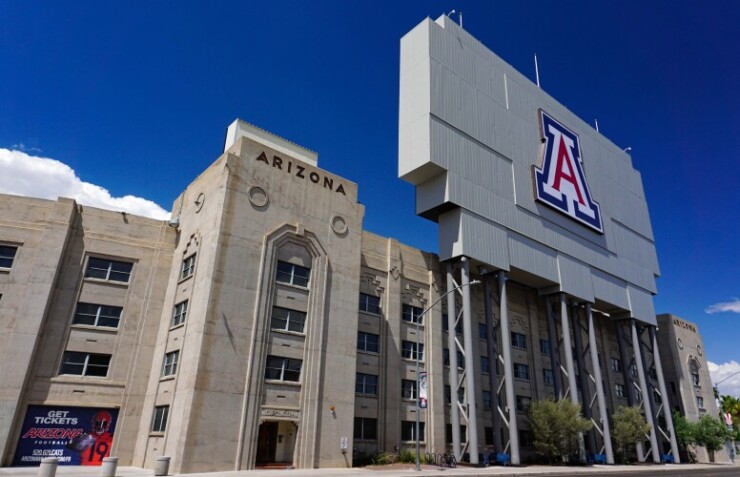The University of Arizona's fiscal problems will be solved over the next 18 to 36 months as system-wide changes are made, according to school officials who are under pressure from Gov. Katie Hobbs to take action.
In a presentation Monday to faculty and others, Arizona Board of Regents Chair Fred DuVal said two forensic firms have been retained "to triple check" plans to address the Tucson-based university's troubled finances, which include a projected $177 million fiscal 2024 operating deficit.
"There will be changes here," he said. "The changes will be far reaching, many will be difficult and they are all necessary. If we do this correctly, these changes will place the University of Arizona on a stronger footing."

In
"The situation cannot afford any future missteps," she wrote. "If we do not see progress, I will work with stakeholders to identify further changes to leadership and processes in order to fix ongoing problems."
In December, regents unanimously approved recommendations, including enhanced financial reporting and expenditure controls, after the University of Arizona's cash on hand fell below the board's minimum 140 days requirement. Officials said decentralized and unaccountable budgeting
At
Moody's Investors Service, which rates the university Aa2 with a stable outlook, said in a Dec. 21 commentary the board's heightened fiscal oversight demonstrates "credit positive governance during fiscal crises." The university, which had nearly $1.3 billion of bonds outstanding at the end of fiscal 2023, is rated AA-minus by S&P Global Ratings.
Arnold said steps to centralize operations are being taken, targeting university facilities management immediately, followed by human resources and IT operations in early March. He also said there will be budget cuts in fiscal 2025 and beyond with an eye toward reducing administrative bureaucracy.
Hobbs also raised concerns over potential or real conflicts of interest with Arnold's dual roles at the Board of Regents and at the university, as well a separate concern about the university's acquisition of Ashford University, which was rebranded as the University of Arizona Global Campus. She pointed to a Jan. 25 report in the Arizona Republic that indicated the school contributed to university's financial instability.
At a special regents board meeting Thursday, Arnold said when UAGC became a university asset on June 30, it brought $47 million in cash on hand to the university's coffers. While UAGC initially projected an $18 million loss amid lower enrollment in fiscal 2024, he said spending controls and savings that resulted from the merger pared it down to $2.4 million or less.
As for the university's athletics department, officials said they are looking at resetting its budget, placing a "hard cap" on spending, and seeking ways to enhance revenue.





